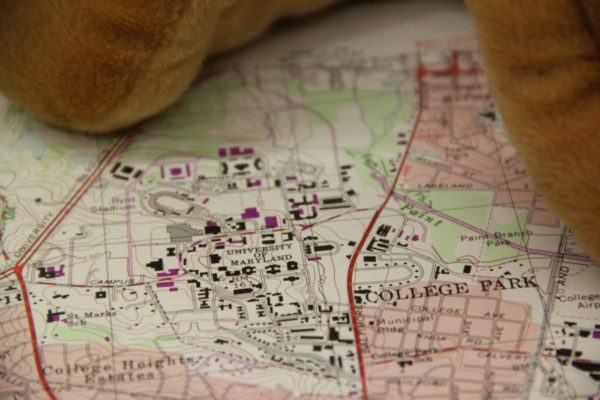Even with the focus on the budget, open data is likely to get a look during this year’s legislative session in Annapolis.
While it won’t be a sweeping policy like the one that was passed in 2014, the data bill that’s being talked about marks one of the first formal recommendations of the state’s newly-formed Council on Open Data.
A Maryland lawmaker is likely to bring legislation during the current session in Annapolis that would guarantee online access to GIS mapping data is free to the general public.
The bill would replace a legislative holdover from 1992.
The legislation urged by the Council would reverse regulations passed in the ’90s that allowed the state to recoup costs of operating GIS mapping systems by charging private citizens for access.
Passed in 1992, the fee-for-access system was designed to help fund the first generation of digital maps, and aimed to keep the government from providing a public subsidy to private users. The government can charge a fee for access to mapping products, or reproduction on a hard disk. Additionally, only government contractors can have online access to the mapping data.
The Council argues that’s inconsistent with the Open Data Act passed in 2014, which encourages that data be made available to the public for free.
According to its annual report, members of the Council on Open Data concluded that sales figures of the data have slowed to the point that state agencies weren’t making much money off of it, anyway.
The legislation wouldn’t nix every fee, as public agencies could still charge for hard copies of maps, as well as CDs and DVDs. That provides a way around requiring citizens to file a formal public records request.
State Sen. Bill Ferguson, who represents Baltimore and helped bring the Open Data legislation, sits on the committee. A staffer said Ferguson requested a bill be drafted that reflected a proposed bill presented in the Council’s annual report. As of Jan. 23, legislation was not yet filed.
The 14-member Council, which was created by the Open Data Act, met four times since being officially created in June. In addition to the mapping legislation, members also discussed the overlaps between open data and public information law, as well as the possibility of taking an inventory of all of the state’s data holdings, the report states.
Before you go...
Please consider supporting Technical.ly to keep our independent journalism strong. Unlike most business-focused media outlets, we don’t have a paywall. Instead, we count on your personal and organizational support.
3 ways to support our work:- Contribute to the Journalism Fund. Charitable giving ensures our information remains free and accessible for residents to discover workforce programs and entrepreneurship pathways. This includes philanthropic grants and individual tax-deductible donations from readers like you.
- Use our Preferred Partners. Our directory of vetted providers offers high-quality recommendations for services our readers need, and each referral supports our journalism.
- Use our services. If you need entrepreneurs and tech leaders to buy your services, are seeking technologists to hire or want more professionals to know about your ecosystem, Technical.ly has the biggest and most engaged audience in the mid-Atlantic. We help companies tell their stories and answer big questions to meet and serve our community.
Join our growing Slack community
Join 5,000 tech professionals and entrepreneurs in our community Slack today!

The person charged in the UnitedHealthcare CEO shooting had a ton of tech connections

From rejection to innovation: How I built a tool to beat AI hiring algorithms at their own game

Where are the country’s most vibrant tech and startup communities?



